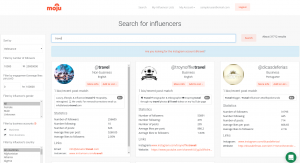In another blog entry, I discussed the essential value of encouraging innovation on an organization-wide scale. To help achieve that, I addressed varied ways to nurture an innovative culture, including financial rewards, time off and the flexibility to work from a place that’s inspiring.
But, no matter if it’s a question of innovation or some other organizational goal, a salient principle holds true: Reward the behavior you desire.
In working with all sorts of organizations, I’m often surprised how often this relatively simple, yet powerful idea is overlooked. But understanding it and applying it on a consistent basis can help boost the organizational goals that you wish to achieve.
Sell This, Not That
Here’s a scenario of inadvertently overlooking the essential value of rewarding desired behavior. Let’s say an accounting firm has traditionally emphasized tax preparation. Every CPA within the firm knows the tax code inside and out. But the company partners want to shift the organization’s emphasis to estate planning, a more comprehensive service.
Despite management’s direction to move toward estate planning, relatively few CPAs within the firm report add the service to their existing client base within the first few months. Puzzled, management circles back to see what the issue might be. As it turns out, the company’s commission formula is still heavily tilted toward tax preparation—the very focus management wanted to readjust.
The ultimate solution is simple. The company makes estate planning more lucrative for its CPAs. In turn, those CPAs respond by placing a greater emphasis on overall estate planning rather than a tax return that needed to be prepared just once a year.
Innovate, Then Reward
In a sense, the accounting team was asking its employees to innovate—by shifting their sales focus to newer, more innovative products and solutions.
But rewarding desired behavior can prove very powerful when building a culture that encourages innovation at all levels of an organization. In fact, it’s essential.
In a recent global survey by the O.C. Tanner Institute published in the Harvard Business Review, 3,500 people from companies in the U.S., Canada, the United Kingdom, Germany and India were asked about their employers’ attitude about innovation. The findings pinpointed a widespread disconnect: While most employees believed that everyone within an organization should be involved in innovation, far fewer said that, in fact, they were actually involved in any form of innovation.
The reason? While management often said they believed in the value of organization-wide innovation, they consistently failed to provide employees with the necessary means to pursue innovation—funding, personnel and other practical means of support.
The report concluded: “If executive endorsement of innovation comes off as largely empty talk, employees are likely to become disillusioned, perhaps cynical. Even those who are self-motivated may stop caring, unless they have the backing—material and moral support—from their leaders.” Further, a “dispiriting work environment can become a dysfunctional company: poisonous to productivity, to say nothing of radical breakthroughs.”
All this boils down to the necessity of rewarding desired behavior. In the case of innovation, if you wish to nurture it at all levels of your organization, make certain suitable support, rewards, benefits are in place to effectively encourage it.
The same holds true for whatever behavior or results you wish to foster. No matter if it’s a newly introduced product or service you want your sales force to promote or a pervasive culture where innovation is everyone’s responsibility, encouraging the behavior you desire mandates a suitable reward structure. Anything short of that can come off as mere lip service.
Innovate, the reward. To learn more tenets of an Anticipatory Organization, get The Anticipatory Organization from Amazon.com.
Business & Finance Articles on Business 2 Community
(32)
Report Post



